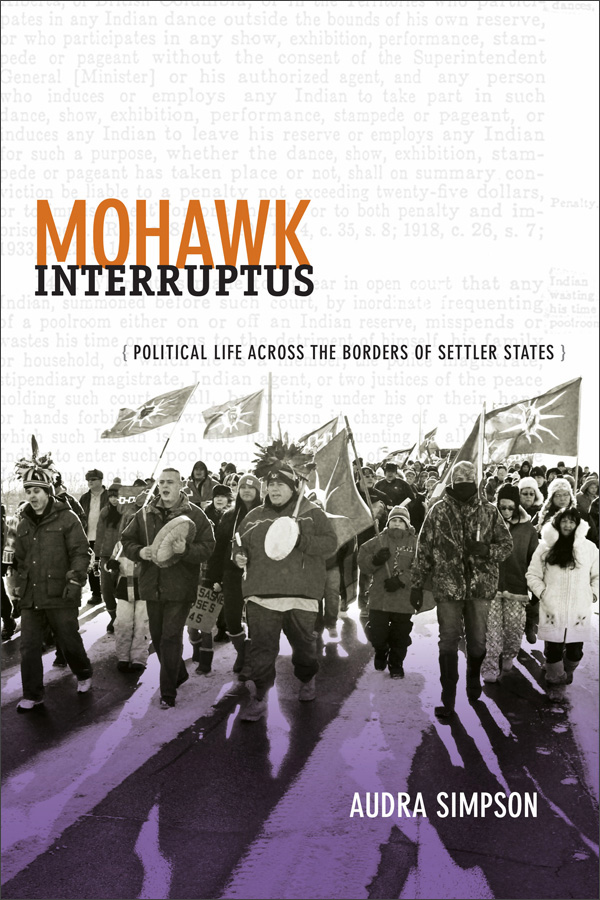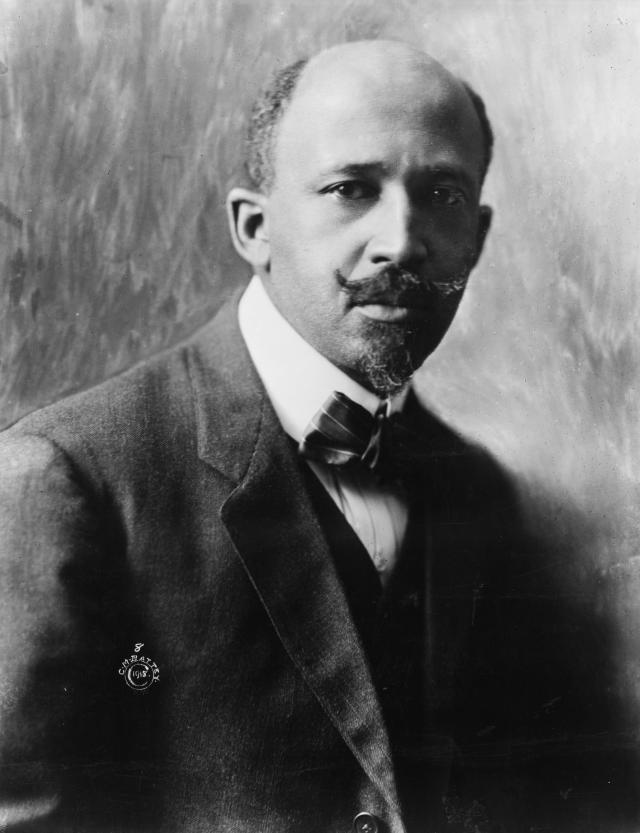John is joined by friends-of-the-show Tyler Tully and Danielle Hanley to discuss Audra Simpson‘s Mohawk Interruptus: Political Life Across the Borders of Settler States (Duke UP, 2014). The book — simultaneously a work of political theory, ethnography, and settler colonial studies — thinks with the Kahnawà:ke Mohawks to examine the situated production and assertion of Indigenous political subjectivities, membership(s), sovereignties, knowledges, practices, and much more.
We talk through questions of a politics of refusal (and a politics of recognition and governance by settler states), ongoingness of settler colonialism (and how Simpsons confronts it), race and indigeneity (and why BIPOC might not be so great), Indigenous and settler epistemologies, dispossession and heteropatriarchy, the libidinal economy of white saviorism, and much more. Not to mention, there is extensive and extremely deserved dragging of John Locke. Are we in a post-, de-, and/or anti-colonial frame? Tune in to find out.
And, stay tuned for the glorious return of giving advice to listener questions! We tackle a question about organizing notes, texts, sources, etc., which unsurprisingly becomes a sort of meditation on our own academic trajectories, peccadillos, and bugaboos.
Requests for texts for us to discuss? Dreams for us to interpret? Advice questions for us to answer? Email us at alwaysalreadypodcast AT gmail DOT com. Subscribe on iTunes or Spotify. Follow us on Twitter. Like our Facebook page. RSS feed here. Patreon here. Thanks to Bad Infinity for the intro music, “Post Digital,” from their album FutureCommons; always already thanks to B for the outro music. For the mp3 of the episode click here.
Links:
- Simpson’s homepage at Columbia
- Simpson’s 2016 Theory & Event article, “The State Is a Man: Theresa Spence, Loretta Saunders and the Gendered Costs of Settler Sovereignty”
- “Reconciliation and its Discontents: Settler Governance in an Age of Sorrow” lecture by Simpson
- Tyler Tully, “Epistemological Sacrifice Zones and the Decolonization of Religion“









